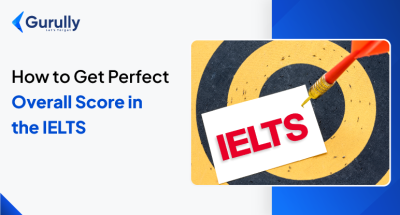If you are looking for a successful career in a foreign land, it becomes possible with the IELTS exam or International English Language Testing System, a test that will only check your proficiency in English as a language. It might be easy for some, but it is often a hard nut to crack for non-native speakers. Either way, if English as a language makes you uncomfortable and you are looking for genuine IELTS preparation tips to ace the scores, we have got you some help.
5 Tips and Techniques For IELTS Preparation
Here are some very common, general, yet useful IELTS preparation tips that will help you in scoring high.
Read and read – Maintain Variety in your readings
The saying goes, “One who reads succeeds!” and there’s immense truth to that statement, especially when it comes to proficiency examinations like the IELTS. Reading extensively is one of the most effective ways to develop your English language skills and prepare yourself for the exam. The benefits of diverse reading extend far beyond exam preparation. Exploring different genres, authors, and cultures opens your mind to new perspectives and ways of thinking. Reading biographies and autobiographies allows you to step into the shoes of different people and gain a deeper understanding of the world around you. Fictional stories, on the other hand, can spark your imagination and creativity, while historical accounts offer a window into the past.
-
- Exposure to Different Styles: Reading a variety of genres, from news articles to fictional stories, exposes you to diverse writing styles and vocabulary usage. This helps you understand how language is used in different contexts, making you a more well-rounded reader.
- Expanding Your Vocabulary: Immersing yourself in different genres naturally expands your vocabulary bank. As you encounter new words in news articles, technical manuals, or fictional narratives, you begin to understand their meaning and usage. This enriches your own writing and speaking abilities.
- Enhancing Comprehension Skills: By tackling a variety of writing styles and content, you develop stronger comprehension skills. You learn to decipher complex ideas, follow arguments, and analyze information effectively, all of which are essential for success in the IELTS exam.
Make the dictionary your best friend!
While the passage is correct in highlighting the importance of the dictionary as a valuable tool for vocabulary building, there’s more to consider for truly effective learning.
- Unveiling Meanings: The dictionary is an undeniable treasure trove of words and their definitions. When you encounter an unfamiliar word in your reading, the dictionary allows you to quickly grasp its meaning and expand your vocabulary base.
- Refining Communication: Understanding the nuances of word meaning enables you to communicate more precisely and effectively. The dictionary helps you identify synonyms and antonyms, allowing you to choose the most appropriate word for the context.
- A Reliable Source: In today’s digital age filled with online resources, the dictionary remains a reliable source for accurate definitions and usage examples.
- Learning in Context: While the dictionary provides definitions, truly understanding a word requires seeing it used in context. Reading extensively exposes you to new words used in sentences and paragraphs, aiding in comprehension and retention.
- Active Learning: Simply memorizing dictionary definitions can be a passive approach. Active learning strategies, like using flashcards, creating mind maps, or practicing using new words in conversation, can significantly boost your vocabulary retention.
- Variety is Key: Learning random words daily can be beneficial, but focusing on thematically related words can be even more effective. For instance, if you’re reading about history, actively learn vocabulary related to specific historical periods or events.
Practice Writing
By immersing yourself in a variety of literature, you gain exposure to different writing styles. From the concise elegance of news articles to the descriptive prose of novels, each genre offers a unique perspective on how language can be used to convey information and tell stories. This exposure allows you to subconsciously absorb these methods, refining your own writing style as you learn.
Record yourself
Speak some content and record yourself.
Hear it…
You will be surprised to see how many mistakes you make unmindfully. It could be using the wrong tenses, wrong pronunciation, or anything else. But listening to your own voice will help you improve the speaking part and make it flawless. It will also help in making your speech much more clear and understandable.
Wondering how you’ll score in IELTS? Use our IELTS Band Score Calculator to find out instantly!
Choose a guiding mentor
If you are attempting any of the English proficiency tests, choosing a mentor has some real significance and multiple advantages. Such mentors help the candidates like a guiding light right from the beginning to the end of the test.
For instance, Gurully.com is a popular online practice platform for CD-IELTS exams. It offers comprehensive IELTS practice tests and mock tests, a quick and meaningful performance analysis, expert advice from experienced professionals, and information-rich content. When you choose the right mentor for your examination, you know you are halfway through!.
Conclusion:
In conclusion, success in a foreign land often starts with clearing language proficiency tests like IELTS. While the exam may seem challenging, the right preparation strategies can make a significant difference. By incorporating extensive reading, leveraging a dictionary for vocabulary enhancement, practicing writing, recording and analyzing your speech, and seeking guidance from expert mentors, you can improve your English skills and boost your IELTS scores. Platforms like Gurully.com provide structured practice, expert insights, and performance analysis to support your journey. With dedication and the right approach, taking the IELTS exam becomes more achievable.
Also Read:
- IELTS One Skill Retake – Get Prepared For 2025
- Set Your Target Score – Know Scoring Pattern Of DUOLINGO Vs IELTS
- PTE vs CELPIP vs IELTS : Which Is Best English Test For Canada PR







